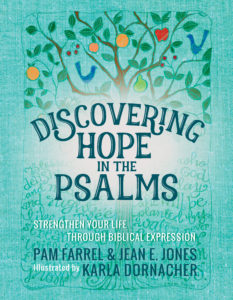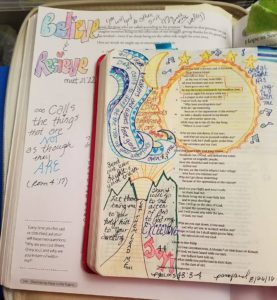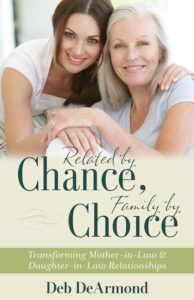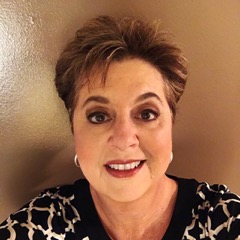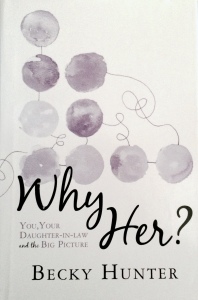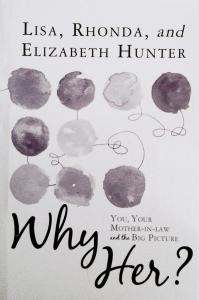Guest Post by Kathy Collard Miller
Aren’t we all feeling weary? We’re wondering when will this COVID crisis end and we can resume our “new normal”? For most of us we are already thinking of the restaurant we’ll go to or what needs to be repaired. In all of this craziness we can be assured God hasn’t been blind or unhearing about our weariness and how we’re wondering how God fits into it all.
In fact, he comes straight out in the Bible and asks, “How have I wearied you?” Let’s look into the insights we can gain from that verse in Micah 6:3.
Even if we’re not weighed down by the Covid crisis, even when we are convinced God’s plan is His will for us, we still can feel weary. When the Israelites were complaining about God’s plan for them, He questioned them through the prophet Micah, “How have I wearied you?” (Micah 6:3 ESV).
We don’t know Micah’s tone of voice when he communicated God’s message to the people, but I wonder if he mimicked the people’s tone. If so, it would have been a whine.
When I, Kathy, grumble, I am like the Israelites in my complaint, God has done me wrong. I’m believing the lie God doesn’t know what He’s doing, and He will abandon me. He is giving me more than He is capable of empowering me to handle.
That was especially true when Larry’s mother, Audrey, lived with us. When it was clear Audrey could no longer live on her own, I felt dejected, knowing the only option was caring for her in our home. I sat on the patio, looking out at the setting sun. I felt like my life had just set. My life is gone. My life is ruined. I felt hopeless and helpless to battle against God’s will or believe He could help me win the battle. What will become of me?
My husband, Larry, also struggled with discontent. As time went along and his mom was diagnosed with Lewy Body Dementia, which includes paranoia, delusions, and hallucinations, he described feeling weary, as if he was being swallowed up by the endless needs of a demented woman who accused him of trying to kill her. Audrey ended up denying Larry was even her son.
We should have listened to what God says as he continues talking to the Israelites through Micah,
“For I brought you up from the land of Egypt
and redeemed you from the house of slavery,
and I sent before you Moses,
Aaron, and Miriam” (Micah 6:4).
He encourages them to remember all the times and ways He has provided for them in the past. And if He cared in the past, He would provide again and again and again.
Just as God had an answer for the complaining Israelites, Larry and I turned more and more to God’s answers and strength to combat our weariness. Day by day we remembered God’s faithful provision in the past when He healed our marriage and used our story to encourage others as we spoke at marriage retreats. We leaned on him asking for His power and guidance for Audrey’s care.
When we fell back into a weary whining, God’s words through Micah spoke to us, “How have I wearied you? Don’t I have the right to do anything I want with my servants—you? I’m empowering you and changing you. Trust me.”
We were humbled because we saw our complaints as what they really were: rebellion against the loving hand of God. God’s joy, freedom, and surrender were available to us. We could trust He was the same God who provided in the past and would strengthen us again and again. Plus, we discovered greater joy in each other as we united to serve a mentally ill woman.
After two-and-a-half years of living in our home, when Audrey joined Jesus in heaven, the Lord whispered in our hearts, “Well done, good and faithful servants.” He was the faithful one and deserved the credit, even to overcome our weary feelings.
Why do you think it’s difficult to remember God’s faithful past provision during a difficult challenge?
Think of a way God provided for you in the past which could encourage you in a current difficulty.
Faithful God, I praise you for your provision even though I am not faithful. Thank you for being willing to empower me by reminding me of the last time you provided more than I thought you could.
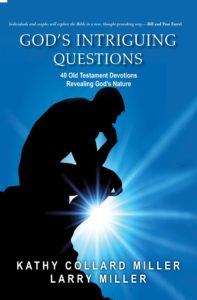 Kathy Collard Miller and Larry Miller have been married since 1970 and speak and write both separately and together. Their most recent book is God’s Intriguing Questions: 40 Old Testament Devotions Revealing God’s Nature (from which this post has been adapted). Kathy and Larry are parents, grandparents, lay-counselors and live in Southern California. They have spoken internationally and nationally. www.KathyCollardMiller.com
Kathy Collard Miller and Larry Miller have been married since 1970 and speak and write both separately and together. Their most recent book is God’s Intriguing Questions: 40 Old Testament Devotions Revealing God’s Nature (from which this post has been adapted). Kathy and Larry are parents, grandparents, lay-counselors and live in Southern California. They have spoken internationally and nationally. www.KathyCollardMiller.com

